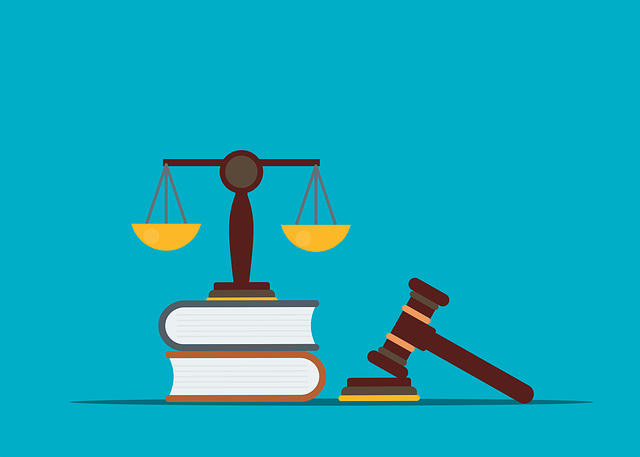Category: defending against wire fraud charges
Defending Against Wire Fraud Charges: A Comprehensive Guide
Introduction
In today’s digital age, where transactions occur predominantly online, the risk of wire fraud has become a significant concern for individuals, businesses, and governments worldwide. Wire fraud refers to the criminal act of using electronic communication to deceive and manipulate others into transferring money or sensitive information. As our reliance on digital systems grows, so does the sophistication and frequency of these fraudulent schemes. This article aims to provide an extensive overview of defending against wire fraud charges, exploring various strategies, technologies, and regulatory frameworks that can mitigate these risks. Readers will gain valuable insights into the complex world of financial security, learning how to protect themselves and their organizations from the pervasive threat of wire fraud.
Understanding Defending Against Wire Fraud Charges
Definition and Core Components
Defending against wire fraud charges involves a multi-faceted approach to combat the use of electronic communication for illicit purposes. It encompasses a range of techniques, technologies, and legal strategies designed to identify, prevent, and penalize fraudulent activities. At its core, it requires a thorough understanding of:
- Electronic Communication: This includes various digital channels such as email, instant messaging, voice over IP (VoIP), and online banking platforms. Fraudsters exploit these mediums to transmit deceptive messages and execute scams.
- Money Transfer Methods: Wire transfers, electronic funds transfer (EFT), peer-to-peer payment apps, and cryptocurrency exchanges are common avenues used to facilitate fraudulent transactions.
- Deceptive Tactics: Techniques like phishing, spear phishing, pretexting, and social engineering manipulate victims into divulging sensitive information or transferring funds without their consent.
- Legal Frameworks: Wire fraud is a criminal offense defined by laws such as the Computer Fraud and Abuse Act (CFAA) in the United States and similar legislation worldwide. These laws outline the legal implications and penalties for convicted offenders.
Historical Context and Significance
The evolution of wire fraud can be traced back to the early days of telegraph and telephone communications, where fraudulent schemes involved manipulating these new technologies. As the internet emerged, so did more sophisticated forms of wire fraud, taking advantage of email, instant messaging, and online auction platforms. The rise of e-commerce further fueled the need for robust security measures to protect digital transactions.
Today, defending against wire fraud charges is a critical aspect of cybersecurity and financial crime prevention. With fraudsters employing increasingly complex methods, organizations and individuals must stay ahead by adopting advanced technologies and staying informed about emerging threats.
Global Impact and Trends
International Influence
Wire fraud knows no borders, and its impact is felt worldwide. According to the Federal Bureau of Investigation (FBI), international cybercrime, including wire fraud, resulted in losses exceeding $4.1 billion in 2020. This global phenomenon highlights the need for unified efforts to combat these crimes.
Regional Trends
- North America: The United States and Canada have seen a rise in sophisticated phishing attacks targeting financial institutions and individuals. Fraudsters often use personalized messages, making it harder for security systems to detect.
- Europe: With the Euro as a common currency, cross-border wire fraud is prevalent. European countries are implementing stricter regulations and collaboration among law enforcement agencies to combat these crimes.
- Asia Pacific: Rapid digital transformation in this region has led to an increase in mobile banking and online payment scams. Fraudsters exploit cultural nuances and language barriers to target vulnerable individuals.
- Middle East and Africa: These regions often experience a higher rate of fraud due to limited financial literacy and regulatory frameworks. However, growing awareness and investments in cybersecurity are driving positive changes.
Economic Considerations
Market Dynamics
The economic impact of wire fraud is significant, affecting both victims and the broader economy. According to a report by the Association for Financial Technology (AFT), global financial loss due to cybercrime reached $1.46 trillion in 2021, with wire fraud accounting for a substantial portion. This trend underscores the need for robust economic measures to counter these threats.
Investment Patterns and Risk Mitigation
- Risk Assessment: Financial institutions invest heavily in risk assessment tools and anti-fraud software to detect and prevent wire fraud. Machine learning algorithms play a crucial role in identifying patterns and anomalies in transaction data.
- Insurance Coverage: Many businesses and individuals opt for cyber insurance to protect against financial losses arising from wire fraud. This insurance sector is growing, reflecting the increasing awareness of cyber risks.
- Economic Growth: Effective fraud prevention can stimulate economic growth by fostering digital transactions and boosting consumer confidence.
Technological Advancements
Innovations in Fraud Detection
- Artificial Intelligence (AI): AI-powered systems analyze vast datasets to identify fraudulent patterns and anomalies, improving detection rates. Natural Language Processing (NLP) helps in understanding the context of communications, enhancing phishing detection.
- Blockchain: This technology offers enhanced transparency and security for transactions, making it harder for fraudsters to manipulate data. Smart contracts can automate processes, reducing human error and potential fraud.
- Biometric Authentication: Fingerprint, facial recognition, and voice verification add an extra layer of security, ensuring that only authorized individuals can access sensitive information.
Emerging Technologies to Combat Fraud
- Quantum Computing: While still in its early stages, quantum computing could revolutionize cryptography, making it more secure against future hacking attempts.
- 5G Networks: Faster connectivity enables real-time fraud detection and response, crucial for dynamic online transactions.
- Internet of Things (IoT) Security: As IoT devices become more prevalent, securing them is essential to prevent their exploitation in fraud schemes.
Legal and Regulatory Frameworks
International Cooperation
Combating wire fraud requires international collaboration due to its global nature. Organizations like INTERPOL facilitate information sharing and coordinated efforts among law enforcement agencies worldwide.
Key Legal Measures
- Computer Fraud and Abuse Act (CFAA): In the US, this federal law provides a legal framework for prosecuting computer-related fraud, including wire fraud. It imposes severe penalties, including fines and imprisonment.
- EU ePrivacy Directive: The European Union’s directive regulates the processing of personal data in electronic communications, offering protections against unauthorized access to private information.
- Anti-Money Laundering (AML) Regulations: Many countries have stringent AML laws that require financial institutions to implement measures to prevent wire fraud and money laundering.
Strategies for Defending Against Wire Fraud Charges
Prevention and Awareness
- Employee Training: Educating employees about phishing, social engineering, and other common scams can significantly reduce the risk of internal fraud.
- Security Awareness Programs: Regularly updating security protocols and conducting simulated phishing campaigns to test employee vigilance.
- Two-Factor Authentication (2FA): Implementing 2FA adds an extra layer of security for online accounts, making it harder for unauthorized individuals to gain access.
Advanced Security Technologies
- Fraud Detection Software: Utilizing AI and machine learning algorithms to analyze transaction patterns and identify suspicious activities in real time.
- Network Security: Implementing firewalls, intrusion detection systems (IDS), and virtual private networks (VPNs) to secure digital communication channels.
- Encryption: Encrypting sensitive data both at rest and in transit ensures that even if intercepted, it remains unreadable by unauthorized parties.
Incident Response and Reporting
- Developing Incident Response Plans: Organizations should have clear protocols for responding to security breaches, minimizing damage and facilitating recovery.
- Reporting Mechanisms: Encouraging employees to report suspicious activities and providing multiple channels for anonymous reporting enhances the organization’s overall security posture.
- Legal Compliance: Ensuring compliance with relevant data protection and privacy laws, such as GDPR in Europe, is essential for legal defense against wire fraud charges.
Conclusion
Defending against wire fraud charges involves a comprehensive approach that combines technological advancements, legal frameworks, and robust security measures. As fraudsters continually adapt their tactics, staying informed and adopting cutting-edge technologies are vital. By investing in cybersecurity and promoting digital literacy, individuals, businesses, and governments can protect themselves from the ever-evolving landscape of wire fraud.
Protect Your Legacy: Expertise in Defending Against Wire Fraud & Securities Violations – Free Consultation

Protect your hard-earned reputation and financial stability with our expert defense against wire fra…….
Defend Against Wire Fraud: Save Thousands – Free Consultation Now

Are you facing wire fraud charges, leaving your financial future in tatters? Our expert legal team o…….
Protect Your Wealth: Master Strategies to Defend Against Wire Fraud Charges
Protect Your Assets: Save Time & Money with Expert Wire Fraud Defense
Stop Wire Fraud Charges, Save Thousands – Top Lawyers for Your Defense

Facing wire fraud charges can drain your finances and damage your reputation. Our free consultation…….
Protect Your Wealth: Top Wire Fraud Defense, Free Consultation.

In an era where digital threats are on the rise, protecting your financial security and reputation i…….
Protect Your Reputation & Assets: Win Civil Litigation Against Wire Fraud Charges
Protect Your Business: Denver’s Top Wire Fraud Defense – Free Consultation

Facing wire fraud accusations can put your Denver business at grave risk, threatening not just your…….
Expert Defense Saves You From Costly Wire Fraud Charges

Are you facing wire fraud accusations that could drain your finances and ruin your reputation? Our e…….



